Buying a home is harder than ever and the housing crisis is still forcing more people into homelessness every day. In cities like San Francisco, entire blocks of city streets are full of ratty old trailers and motorhomes parked end. Even here in Cache Valley, rent has more than doubled in less than a decade.
Inflation may be down, but it sure doesn’t feel like it. Grocery prices are still sky high. The damage from inflation is cumulative. For many, wages have not kept pace, they are struggling and will continue to do so until things improve.
The result of all these economic pressures is that around 60% of the nation has less than $1,000 in savings to deal with an emergency. A minor setback such as injury or job loss is all it would take to put them out on the street. These are signs of a deeply, deeply troubled economy. (Renter, 2023)
Many cannot no longer afford rent even though they are employed full time. What are their options? Manufactured housing used to be an option, but many trailer parks are now like Hotel California. Once they are in, tenants find themselves forever trapped by systems and contracts purposely designed to make it nearly impossible for the renter to get out of the trailer park and back on their feet. (Chris Arnold, 2021) Even if the new administration is able to address the problem, wages may increase, but it is unlikely that the cost of homes or rent will decrease.
The result of the policy changes that have taken place over the past four years is motorhomes and travel trailers parked end-to-end on entire blocks of city streets housing the working homeless. (Brinklow, 2019) Many more live in truck campers and vans. Priced out of homes and unable to afford ridiculously high rent, or simply opting to live this way to get out of debt, they adopt a minimalist lifestyle or sell what they can and put most of their belongings and furniture in storage, and live in trailers, motorhomes, vans, cars and sometimes even boats.
Such solutions are a step up from living on the street or out of a storage unit. Chris Farley first created his SNL comedy sketch about the character Matt Foley living in a van down by the river in 1993. (Wikipedia, 2024) By making the economic policies espoused by many SNL actors, living in a van down by the river is now the best many Californians can hope for.
Survivalists can learn from the Van-Life and working homeless communities, as they can from many groups forced to adapt to volatility.
Where are they living? What do they eat? Where do they park? How do they bathe? What are the Pros and Cons? Is Van-Life a viable plan B?
RVing vs Van-Life
Living in trailers and motorhomes used to be the domain of independent retirees drawn to a nomadic lifestyle. Many are snowbirds, traveling north in summer to avoid the summer heat and south in winter, avoiding the snow. In the past, mostly seniors lived as full-time RVers and had homes to return to when they tired of it or could no longer keep it up.
There are differences between the Van-Life crowd and the fulltime RVer crowd.
If one was to judge the makeup of either community by the online content, they could be forgiven for concluding that they are both dominated by mostly younger digital nomads, but they are just posting more online content because it’s how they make a living. Surveys tell us that most full-time RVers are baby boomer couples who live in trailer parks or RV parks.
The recent trend of people of any age living in RVs for financial reasons is worrying. According to a 2020 survey, the majority of people who would consider Van-Life are millennials.
Van-Lifers often find a spot to sleep on BLM or National Forest Land and then drive to work. They work at all kinds of jobs, but they are often entrepreneurs, remote workers, gig workers or work seasonal or odd jobs.
Immigration policy has also added a number of undocumented migrants living in trailers and motorhomes. (Mullaney, Homeless RV dwellers face looming expulsion—and no plan for what comes after, 2024) (Mullaney, Caravan of the unwanted: Crisis in condemned RV community shows the city has no plan, 2024)
Many seniors are also having to work during their retirement years to supplement their income. If you get to know your greeter at Walmart or Sam’s Club, you may be surprised to learn their stories. Many have worked long, successful careers but found that their savings was insufficient. There are many ways for them to fall through the cracks, but they include being victims of: the subprime mortgage crisis, inflation, financial crimes, divorce, inflated healthcare costs, disability, illness, or choosing to spend their savings to help their children.
Van-Life
Here are some interesting facts about the Van-Life crowd:
- 51% live in their vans full-time.
- At 49%, nearly half split time in vans with other living arrangements.
- Only 36% live alone.
- 44% live with one other person.
- 20% live with more than one other person.
- Only 4% are retired.
- 9% are unemployed.
- States with the most Van-Lifers are California, Oregon, Washington, Colorado, and Florida.
- 43% live in cargo vans.
- 18% live in passenger vans.
- 13% live in Volkswagen vans.
- 6% live in RVs.
- 79% do DIY van conversions.
- 50% sleep on BLM National Forest Land.
- 38% camp for free.
- Only 4% spend more than $300 per month on campsites.
- 39% use public restrooms.
- 35% use a toilet built-in to their van.
- 28% shower using gym memberships. – I did this for a few months. I was living in ratty accommodations in Portugal while looking for an apartment. There was only one bathroom shared by a floor of rooms and it didn’t have a showerhead, just a pipe sticking out of the wall and the water pressure was just a trickle. Residents would come bang on the door and yell when they had to use it, even if you had only been in there for 30 seconds. The gym membership wasn’t expensive and was a much better solution.
- 21% use a shower built-in to their van.
- 56% spend between $101 and $300 on gas per month.
- 27% spend more than $300/month on gas.
- 17% spend under $100/month. (Staff, 2018) (Todorov, 2024)
The Pros and Cons of Van-Life
Pros
- Many are willing to move into vans to pay off debt or lower living expenses. Used cargo vans can be found for several thousand dollars, so it is possible to get into a van for the price of first and last month’s rent.
- Minimalism appeals to many for many of the same reasons that living a simpler self-sufficient life appeals to survivalists and Van-Life necessarily involves the adoption of a minimalist lifestyle.
- Having a self-contained bugout vehicle that you can live out of also obviously appeals to survivalists
- While one would think that living in a van would be a solitary existence, many Van-Lifers enjoy the lifestyle and feel that it presents many opportunities to make friends and connect with others.
- Then there is the simple beauty of travel, the freedom to travel and the peace and tranquility of camping.
Cons
- The benefits of the Van-Life lifestyle are offset by lack of privacy and stability. Van-Lifers who stealth camp may do so in fear of the dreaded 2:00AM knock on the window by law enforcement and the potential for such a contact to end badly. Any way you slice it, sleeping with no more than a foot between you and whoever is standing outside your vehicle does not feel very secure.
- The lack of basic infrastructure like hot showers and convenient toilets. Cooking options are also somewhat diminished.
- I also think there are drawbacks for parents, especially parents of school-aged children. While the benefits of playing in national forests are obvious, living in a van would be tough on older kids, especially teenagers. It also seems like the worst fear of parents, fear that the government will not approve of their lifestyle and will use the court system to take their children from them, would weigh heavily on the scale.
- While one might think that the constitution should afford all citizens the same protections whether or not their homes are mobile, there are important differences under the law. Chief among them is that under the law, driving a motor vehicle is a privilege, not a right. Even if they are not breaking any laws, a law enforcement officer may take issue with the lifestyle or location and do everything in his power to make life hard on them. Then there is the problem of law enforcement, or any passerby for that matter, being able to shine a light into your vehicle and survey virtually everything your own. While you may have Fourth Amendment Rights that prevent unlawful search and seizure, law enforcement officers may have plenty of fodder to get creative in regard to probable cause. (Young, 2021)
- Many van dwellers use public Wi-Fi, which is less convenient and less secure than having a dedicated connection.
As Stephen Covey said, attitude and behavior are functions of vision. When a person’s vision changes, his attitudes and behaviors automatically change. The way we see the problem often is the problem. I think this applies here.
Those who choose to live a minimalist lifestyle may enjoy it if they chose to do it. For those who have been compelled to adopt a minimalist lifestyle, the enjoyment may be somewhat less.
Ultimately, whether you love it or hate it may boil down to why you do it and how your perception of your situation. If you feel that you are living your values, you may like it and if you have a spouse and kids with you, you’ll have to convince them to live those same values too. If you live in a van because you have nowhere else to live and no other choice, it may share more than a few similarities with living in a 5’ x 9’ prison cell.
Summary
For those considering Van-life as plan A, B or C, it makes sense to research the topic thoroughly beforehand. Storage fees and property damage can be reduced, and storage made more usable, by lining storage units with shelving. I would also sell what I could, try to maintain a cash cushion for towing, repair and emergencies, and invest in insulated blackout covers, a toilet, shower, the means to prepare meals, a solar electric system and satellite internet access to help mitigate some of the worst inconveniences.
Self-reliance being important to survivalists, they will also want to include a repair manual for their vehicle, a solid toolkit and perhaps backup transportation such as a motorcycle, motoped, or electric bike to give them the capability to go find repair parts and bring them back. Survivalists may also want to choose a vehicle that does not have a lot of parts known to be vulnerable to HEMP, harden the vehicle, and carry a compliment of electrical fuses. First among the many modifications they will want should be long-range and auxiliary fuel tanks to enable travel to a safe area or bugout location in the event that fuel becomes unavailable.
References
Brinklow, A. (2019, December 12). San Francisco Opens Parking Lot Specifically for the Homeless. Retrieved from sf.curbed.com: https://sf.curbed.com/2019/12/12/21012558/san-francisco-vehicle-triage-homeless-parking-geneva-balboa-park
Chris Arnold, R. B. (2021, December 18). How the government helps investors buy mobile home parks, raise rent and evict people. Retrieved from npr.org: https://www.npr.org/2021/12/18/1034784494/how-the-government-helps-investors-buy-mobile-home-parks-raise-rent-and-evict-pe
Mullaney, A. (2024, August 01). Caravan of the unwanted: Crisis in condemned RV community shows the city has no plan. Retrieved from standard.com: https://sfstandard.com/2024/08/01/vehicular-homeless-community-winston-drive/
Mullaney, A. (2024, June 19). Homeless RV dwellers face looming expulsion—and no plan for what comes after. Retrieved from standard.com: https://sfstandard.com/2024/06/19/san-francisco-rv-vehicular-homeless/
Renter, E. (2023, May 09). Most Americans Save, but Many Can’t Cover a $1,000 Emergency. Retrieved from nerdwallet.com: https://www.nerdwallet.com/article/banking/data-2023-savings-report
Staff, O. L. (2018, April 21). Van-Life Statistics. Retrieved from outboundliving.com: https://outboundliving.com/van-life-statistics/
Todorov, G. (2024, March 24). Vanlife Stats. Retrieved from thrivemyway.com: https://thrivemyway.com/vanlife-stats/
Wikipedia. (2024, September 13). Matt Foley. Retrieved from wikipedia.org: https://en.wikipedia.org/wiki/Matt_Foley
Young, O. (2021, March 12). Van-Life Pros and Cons. Retrieved from treehugger.com: https://www.treehugger.com/van-life-pros-and-cons-5116050








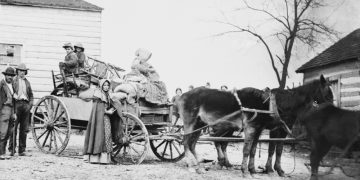




















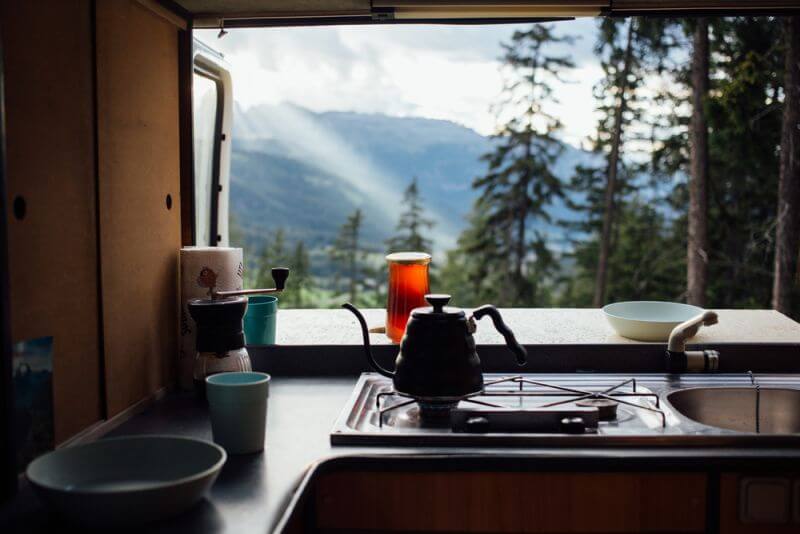

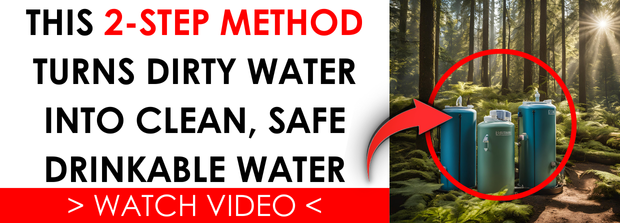










































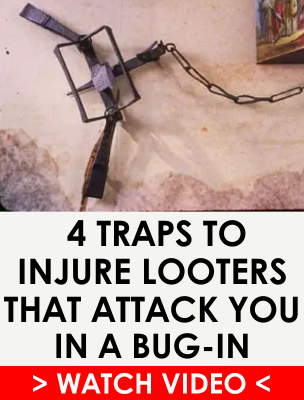
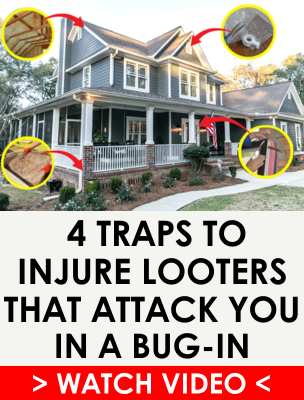










Van life became Plan A for me in 2013. My health had been going downhill for several years and then over the period of about 3 years I’d moved downward from a 3 bedroom home, 2 car garage, yard/garden into a 2 bedroom 2 bath apartment, to a 1 bedroom apartment and then into the camper van. I was fortunate to have found a camper van a couple years earlier, meant for purposes of camping, but suddenly with decreasing health it became the “go to” living place for me. Rented a space in a couple of RV parks over the next 5 ½ years and lived in the van. It was something I could take care of, most of the time. Six months after moving into the van I found out I had a large slow growing benign brain tumor. It took the length of time that I had yet to work until retirement and another couple of years after retirement to heal enough to be able to move up into an RV travel trailer. Still the trailer seems more than I can adequately take care of at times, but the van became too small for full time living. There have been times when I need to go back to the van to let my brain recoup from being overwhelmed and then I can come back to the trailer. Doubt if I’ll ever be able to live in something other than an RV of some sort, but I don’t mind it. Especially with the way rental prices are going. I’d be classified as one of the baby-boomer type who is either van or RV trailer living, but not necessarily because of financial or debt reasons, but because of health. Living small allows me to maintain independence and I appreciate that very much. So there are other reasons than financial reasons for people living in vans, but whatever a person’s reasons, I have to admire those to are willing for that step to stay independent when life has knocked them down or they’ve never had much of a chance at having a successful life naturally. Interesting set of facts about those living in vans or RV travel trailers though.
Related to van life is one of my many contingency preparedness (Preparedness is not one thing or just one plan because the correct term for that is “planning” which is appropriate, IF you know the future, but we don’t.) ways and that one choice is my “sea based mobility by sailboat” which I’m likely to do in the future regardless of needed or not because it is the retirement life of many who do it and a dream and wish for many who don’t. Essentially, it is non stop vacations linked together with flexibility to enjoy wonderful places in the world among two hundred twenty thousand miles of coastline and inland navigable waterways making roughly 135 nations available. In one rather conventional preparedness group, this question was asked of the group: “What would you do if climate changed to become very hot or very cold?” They didn’t fully appreciate my answer and I understand why with most people having extended family, friends of family and family of friends where they’ve been their whole life, so their preparedness is typically a country living style or aspersions for that. Mine is mobility particularly since I have no family ties where I am. My unconventional answer was: “I’ll sail north for summers and south for winters.” Challenged on that as “not tested and proven,” I said over a hundred thousand on just the East coast routinely do that living their retirement dream!” Further, sailboat travel has thousands of years of history and they are even better now!
[email protected]
Travelin On, Van Life does have its preparedness advantages and is one of my many preparedness capabilities which combines well with others like having more than one location choice or to a limited extent with my sailboat contingencies.
My preparedness is multifaceted with the inclusion of a version of van camping and vacation capabilities that meshes well with the sailing advantages, previously mentioned. Presently having an excellent job, which is as a double edged sword to preparedness, my income affords me the ability to greatly increase my preparedness supplies while among a high density population with vulnerabilities to economic and societal collapse. My mobility options counter those vulnerabilities while my vehicle, chosen for extreme capabilities, has me enjoying vacations which are enjoyable preparedness skills development opportunities. With enormous off-road capabilities of rally winning power and traction, I’ve developed that skill as I combine it with fast and secure off-road winter driving for the best ice fishing destinations. I selected it for its amazing traction in soft loose beach sand for surf fishing vacation for which I’m very stocked up on equipment particularly meshing with sailing since there will be water and fish wherever I travel by sailboat, so having those fishing skills well developed using enjoyable vacation time is an important addition to my preparedness because fish are an excellent and healthful food and most importantly protein that is not scarce as being under the control of ranchers surrounded by starving people. Fish take care of themselves and don’t require me to defend them, so that’s another reason for me having developed good fishing skills.
I’ve mitigated the need and limitations of having to haul a lot of supplies by pre-positioning for the capabilities of traveling light and fast which might also be a preparedness advantage particularly in avoidance of bad situations of ambushes and bandits. Even with surf fishing, I won’t set up on the sand or be hindered by a trailer since vehicle traction capabilities will allow me to be next to the crashing waves as I fish from on a roof platform, so I’m instantly ready to drive off to the next location.
One preparedness group highly favored the bugout trailer, being prepacked and ready to hitch and go. But, not only would that reduce the off-road speed and maneuverability, but it would be an attractive target that I choose not to chance nor have it be as an anchor. In sharp contrast, mobility would allow me to briefly go to some degree of population to benefit from trading yet leave with near zero concerns of being successfully followed to a temporary stay location away from populations to enjoy the advantages of both while mitigating the disadvantages of both.
[email protected]